Popular transportation-on-demand company Uber is facing harsh criticism and a wrongful death lawsuit after a fiery crash claimed the life of a 20-year-old man in Florida’s Miami-Dade county in the early morning hours of December 27.
Shafena Mohamed and Pablo Sanchez Sr., mother and father of the man killed in the accident, filed suit in Miami-Dade Circuit Court on January 8 against the company and the two drivers involved in the crash, Uber drivers Jean Ralph Adam and Adam Shamma Chery.
According to the court filing, Pablo Sanchez Jr. called for a ride on the night of the 27th to take him and some friends from downtown Miami to his parents’ home in Country Walk approximately 30 miles away.

The GMC Yukon he was riding in turned sharply into oncoming traffic, flipped on its side and caught fire. Sanchez was trapped inside the wreckage and died. The drivers and other passengers escaped.
The lawsuit claims that Uber is negligent in its driver screening process and takes no precautions to ensure that drivers aren’t driving while fatigued or otherwise impaired. According to the plaintiff’s attorney, Andrew Yaffa, “Many of these drivers are using Uber to supplement their lifestyle. You may have folks that have two and three other jobs and are coming on duty late in the day. Somehow, someway there needs to be safeguards that Uber is not putting people that are on the verge of falling asleep behind the wheel and responsible for our children.”
Although thousands of Uber drivers currently operate in Miami-Dade county, the service is technically illegal because it doesn’t comply with the county’s car-for-hire regulations. Miami Mayor Carlos Gimenez and the county commission are trying to reach a compromise on differing proposals on driver screening procedures that would lead to legalizing Uber operations in the county. The final proposal is scheduled for an initial vote on January 20.
Bill Gibbons, a spokesman for Uber, had no comment on the lawsuit or company policies but said, “We are deeply saddened by this tragic accident, and our thoughts are with all those involved and their families during this very difficult time.”
Uber does carry commercial insurance on its drivers, with a policy that offers $1 million in coverage once a ride has started.

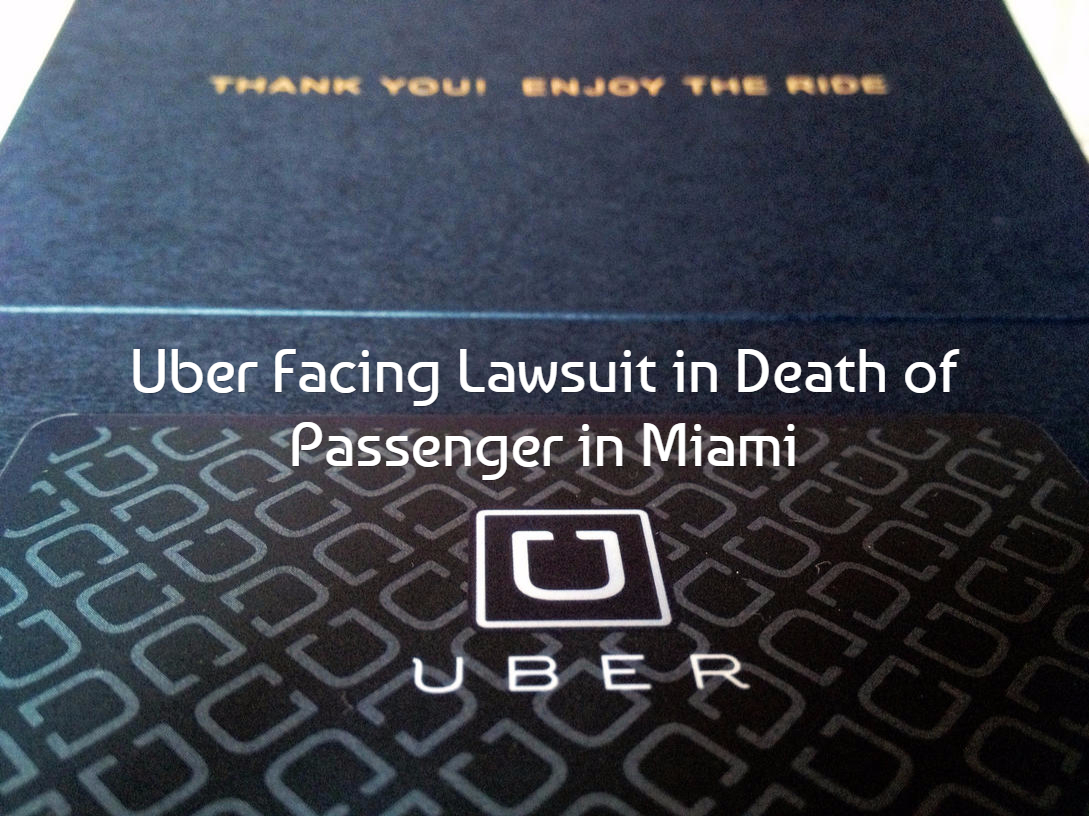
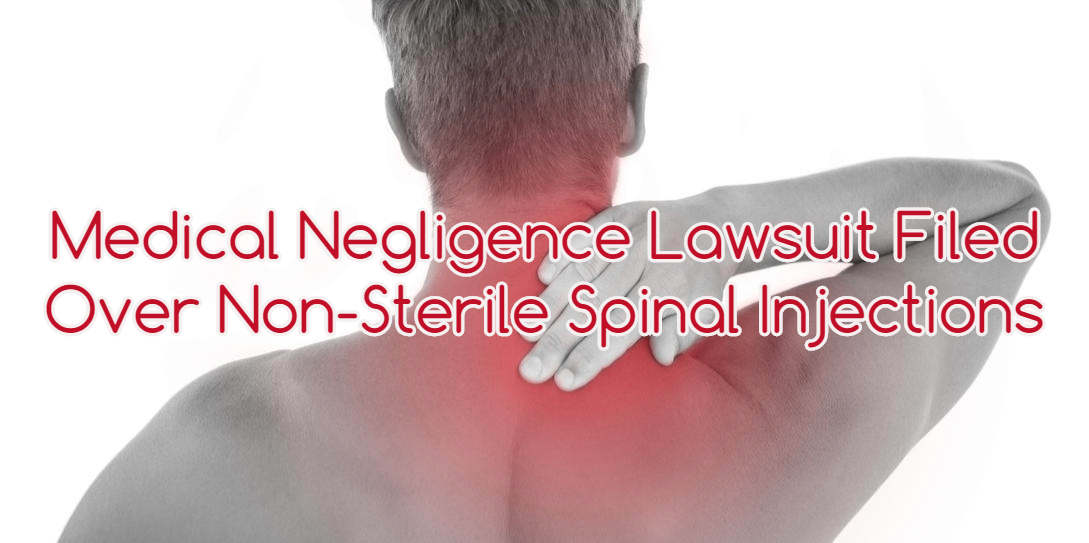
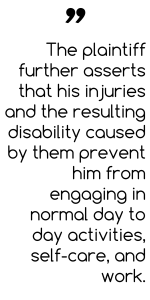 He came under the care of St. Joseph’s Hospital on the 18th of December last year. The reason for Blechinger seeking treatment is undisclosed. Court documents associated with the legal action state that Blechinger was under the care of one Dr. Alejandro J. Alvarado in March of 2015, and that on the very next day he was admitted to the emergency room at St. Joseph’s Hospital. It was at this time that a Dr. Corprew administered the injections to Blechinger’s neck. The plaintiff’s claim states that the injection was performed under non-sterile conditions and that an infection which damaged the nervous tissues of his spinal cord developed.
He came under the care of St. Joseph’s Hospital on the 18th of December last year. The reason for Blechinger seeking treatment is undisclosed. Court documents associated with the legal action state that Blechinger was under the care of one Dr. Alejandro J. Alvarado in March of 2015, and that on the very next day he was admitted to the emergency room at St. Joseph’s Hospital. It was at this time that a Dr. Corprew administered the injections to Blechinger’s neck. The plaintiff’s claim states that the injection was performed under non-sterile conditions and that an infection which damaged the nervous tissues of his spinal cord developed.
 Along with other data, the defeat software detects steering and throttle input and changes fuel pressure, timing of ignition and circulation of exhaust fumes. The software permits the trick engines to emit drastically lower emissions when it senses the engine being emissions tested. Once they’ve completed testing and are back out on the road, the vehicles emit up to 40 times more contamination than permitted by law. The CEO of Volkswagen Group of America admitted to the installation of the software and being “dishonest.” About 500,000 Volkswagens made between 2009 and 2015 driven in the United States with 2.0-liter turbo-diesel engines have the software. Volkswagen says all of the affected vehicles are technically safe.
Along with other data, the defeat software detects steering and throttle input and changes fuel pressure, timing of ignition and circulation of exhaust fumes. The software permits the trick engines to emit drastically lower emissions when it senses the engine being emissions tested. Once they’ve completed testing and are back out on the road, the vehicles emit up to 40 times more contamination than permitted by law. The CEO of Volkswagen Group of America admitted to the installation of the software and being “dishonest.” About 500,000 Volkswagens made between 2009 and 2015 driven in the United States with 2.0-liter turbo-diesel engines have the software. Volkswagen says all of the affected vehicles are technically safe.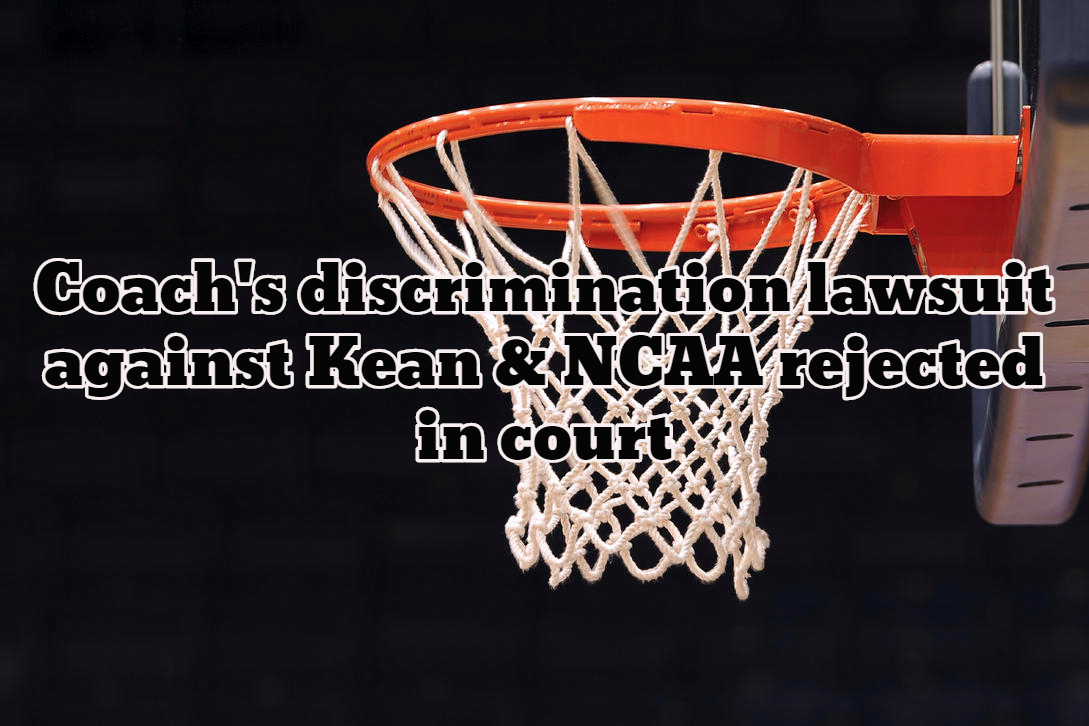
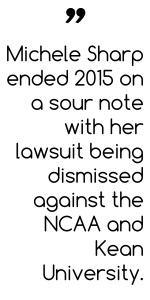 Unfortunately, Sharp’s lawsuit held no facts regarding gender-based discrimination from the NCAA, which was in addition to being nowhere near a plausible lawsuit against Kean University (according to Judge William Martini’s opinion).
Unfortunately, Sharp’s lawsuit held no facts regarding gender-based discrimination from the NCAA, which was in addition to being nowhere near a plausible lawsuit against Kean University (according to Judge William Martini’s opinion).
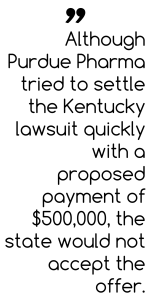 Kentucky officials sued Purdue
Kentucky officials sued Purdue 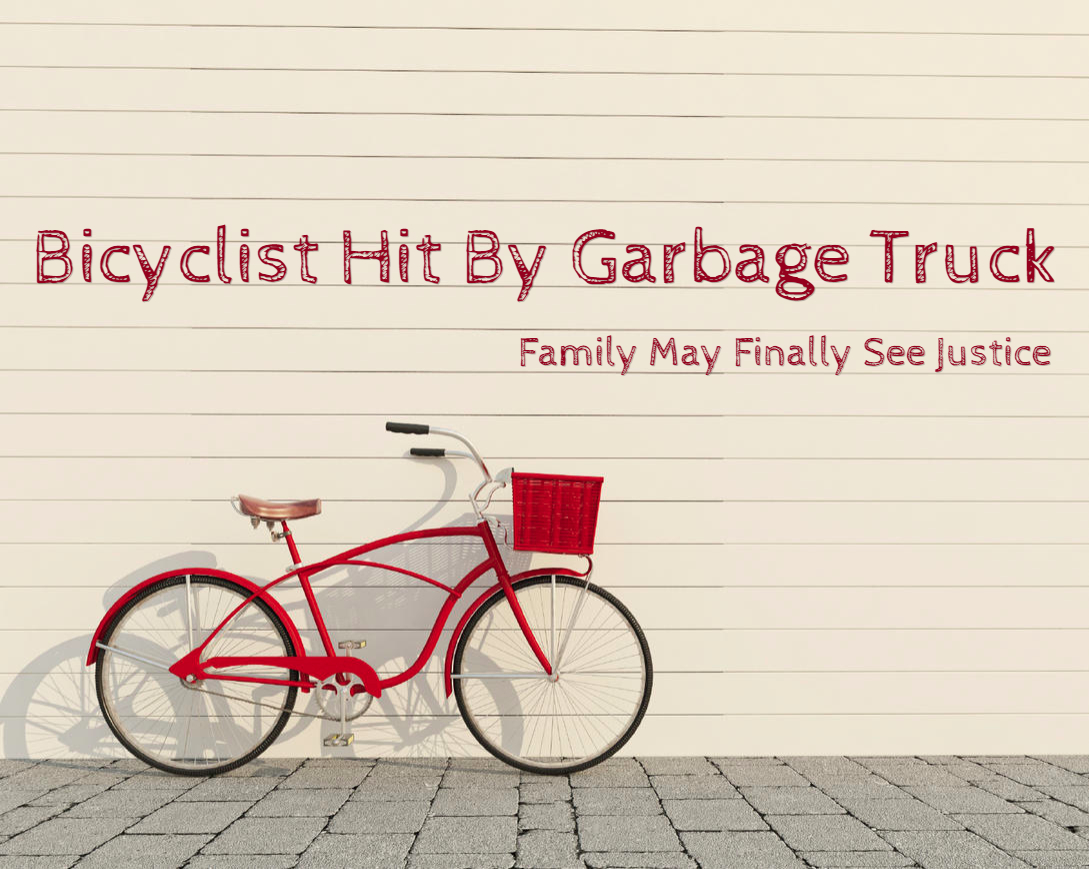
 The suit states that Margaret was forced into an area that was narrow and unsafe. This led to Ms. Rugg being hit by the back tires of the garbage truck. The commercial trash truck injured Margaret severely and eventually lead to her death. The state police reported that on July 22, 2014, Rugg rode her bike through a breakdown lane located on Epping Road in Exeter. She tried to maneuver her bike through a construction lane closure. During this time, Rugg lost her balance and fell. When she fell, she was in the path of a garbage truck driven by Pinard Waste System’s Mark Lancey.
The suit states that Margaret was forced into an area that was narrow and unsafe. This led to Ms. Rugg being hit by the back tires of the garbage truck. The commercial trash truck injured Margaret severely and eventually lead to her death. The state police reported that on July 22, 2014, Rugg rode her bike through a breakdown lane located on Epping Road in Exeter. She tried to maneuver her bike through a construction lane closure. During this time, Rugg lost her balance and fell. When she fell, she was in the path of a garbage truck driven by Pinard Waste System’s Mark Lancey.
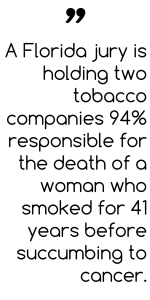 A Florida jury is holding two tobacco companies 94% responsible for the death of a woman who smoked for 41 years before succumbing to cancer. On December 22, 2015, R.J. Reynolds Tobacco Co. and Phillip Morris USA Inc., were ordered to pay a total of $35 million to the deceased woman’s husband – $12.5 million apiece in punitive damages, as well as $10 million in compensatory damages.
A Florida jury is holding two tobacco companies 94% responsible for the death of a woman who smoked for 41 years before succumbing to cancer. On December 22, 2015, R.J. Reynolds Tobacco Co. and Phillip Morris USA Inc., were ordered to pay a total of $35 million to the deceased woman’s husband – $12.5 million apiece in punitive damages, as well as $10 million in compensatory damages.
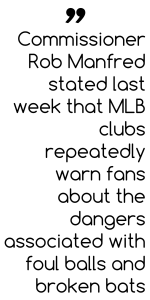 The girl’s father, Fred Fletcher, filed a lawsuit against the Atlanta Braves. In the filing, Fletcher cited the fact that Cabrera (who now plays for the Chicago White Sox) was suspended for 50 games due to testing positive for testosterone. The filing requested that MLB turn over documents relating to that investigation. Lawyers for Fletcher contend that the use of steroids makes players hit the balls harder, giving fans in the stands less time to get out of the way of foul balls.
The girl’s father, Fred Fletcher, filed a lawsuit against the Atlanta Braves. In the filing, Fletcher cited the fact that Cabrera (who now plays for the Chicago White Sox) was suspended for 50 games due to testing positive for testosterone. The filing requested that MLB turn over documents relating to that investigation. Lawyers for Fletcher contend that the use of steroids makes players hit the balls harder, giving fans in the stands less time to get out of the way of foul balls.
 The Two SIdes
The Two SIdes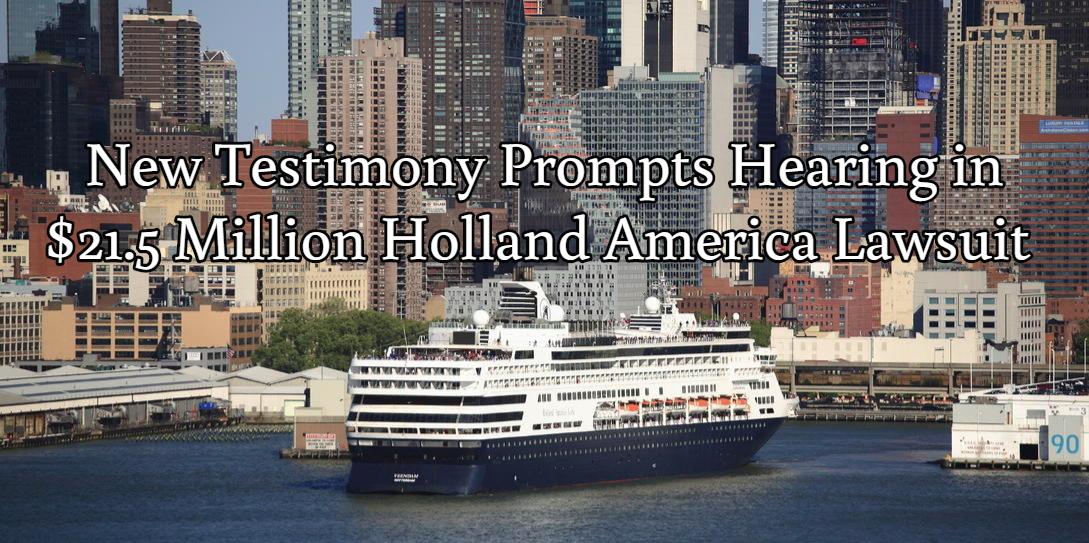
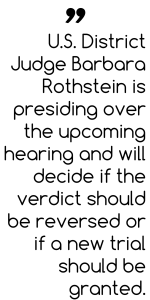 During a 2011 eight-month worldwide sailing trip on the cruise line’s M/S Amsterdam, James Hausman of Illinois was walking out to the pool deck when the ship’s automatic doors struck him on the side of the head. Following the incident, a physician diagnosed the successful businessman with a minor brain injury and post-concussive syndrome. Reportedly, Hausman continues to suffer from seizures, fatigue, and bouts of dizziness because of the injury. An eight-person jury came to a unanimous decision after hearing witnesses on both sides during the course of a nine-day trial. Holland America Line was ordered to pay Hausman millions for pain and suffering as well as emotional distress. Over the course of the trial, attorneys for Hausman accused the cruise line of suppressing documents for over 30 cases of automatic glass door incidents occurring on other sailings in the past three years.
During a 2011 eight-month worldwide sailing trip on the cruise line’s M/S Amsterdam, James Hausman of Illinois was walking out to the pool deck when the ship’s automatic doors struck him on the side of the head. Following the incident, a physician diagnosed the successful businessman with a minor brain injury and post-concussive syndrome. Reportedly, Hausman continues to suffer from seizures, fatigue, and bouts of dizziness because of the injury. An eight-person jury came to a unanimous decision after hearing witnesses on both sides during the course of a nine-day trial. Holland America Line was ordered to pay Hausman millions for pain and suffering as well as emotional distress. Over the course of the trial, attorneys for Hausman accused the cruise line of suppressing documents for over 30 cases of automatic glass door incidents occurring on other sailings in the past three years.